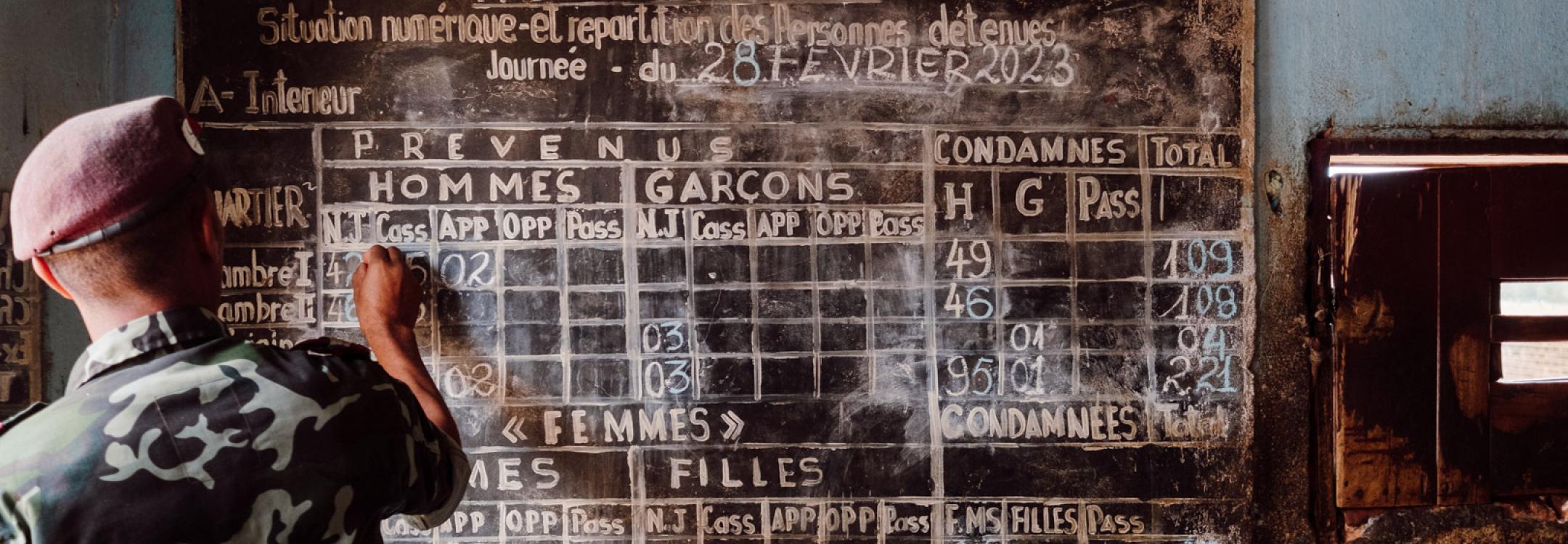
Key elements
There is a significant power imbalance in the closed environment of a prison, with detainees depending almost completely on staff for their basic needs and to ensure that their rights are respected. Prison staff come into contact with detainees on a daily basis and their influence on how detainees experience their detention cannot be underestimated. Prison staff therefore need to have the rights skills, knowledge and attitude to carry out their role with respect for human rights and dignity.
As the European Committee on the Prevention of Torture (CPT) has noted: “The cornerstone of a humane prison system will always be properly recruited and trained prison staff who know how to adopt the appropriate attitude in their relations with prisoners and see their work more as a vocation than as a mere job. Building positive relations with prisoners should be recognised as a key feature of that vocation”.
Analysis
Different kinds of staff in prisons
There are different kinds of staff who work in prisons, including prison officers (also known as correctional officers or detention officers), specialised staff (such as social workers, medical staff and psychologists) and non-uniformed senior management. This theme focuses on prison officers, who carry out the operational task of running prisons on a day-to-day basis.
Prison officers in many contexts have an increasingly complex role: they can be responsible for detainees’ custody, classification, daily routine, security measures, programme of activities, their protection and access to the outside world. An important part of the prison officer’s role should be to provide detainees with the opportunity to use their time in prison positively, so they will be able to resettle in society following their release.
There tends to be relatively little focus on prison staff in the study of prisons: their backgrounds, attitudes and experiences at work. Prison officers often have low social standing and are sometimes negatively stereotyped in public opinion and media.
Key issues
To attract the right staff and maintain a competent, motivated and committed workforce:
- Prison systems should have an active recruitment policy, with a clear idea of the kind of people they wish to recruit. This should set out the nature of the work and have criteria and procedures for selection, which include the appropriate character, skills and qualifications as well as considerations of diversity.
- Prison staff should receive initial training on appointment and regular opportunities for professional development throughout the career. Prison training programmes should be based on a clear understanding of the purpose of prison work and the human right principles that underpin it.
- The working conditions should be favourable. Prison personnel should be professional civil servants appointed on a full-time basis with civilian status, adequate salaries and favourable employment benefits and conditions of service. If prison staff feel valued, trusted and respected at work, they are more likely to apply these principles in the treatment of detainees.
- Prison services should seek to ensure diversity in the prison workforce – this can bring some normality to the prison environment and improve communication between staff and prisoners. Selection procedures should emphasise respect for diversity and all staff should receive diversity and equality training. Non-discrimination should be ensured in respect of staffing issues.
Institution and management
Each prison has its own organisational culture: the atmosphere and set of shared values about the way things are done, which has a significant influence on the working conditions and experiences of its staff.
International standards are clear that prisons should be run by civilian institutions. This is because military and police run institutions tend to be very hierarchical and regimented, and characterised by distrust towards detainees and a punitive approach to imprisonment. This often manifests itself in a culture of violence, with negative implications for detainees as well as staff.
In some contexts, the management of prisons is contracted out to private companies. This has an impact on the organisational culture, conditions of service (private sector prisons are less likely to be unionised, with less security of employment and more power of managers in “hiring and firing”) and staff perceptions of quality of working life.
The management has an important role in determining the culture and atmosphere inside a prison. Much depends on the personality and profile of the director and the extent to which they are able to attract the trust and confidence of staff. It is important that managers look beyond bureaucratic goals to emphasise the ethical context and motivate staff about their the value of their work.